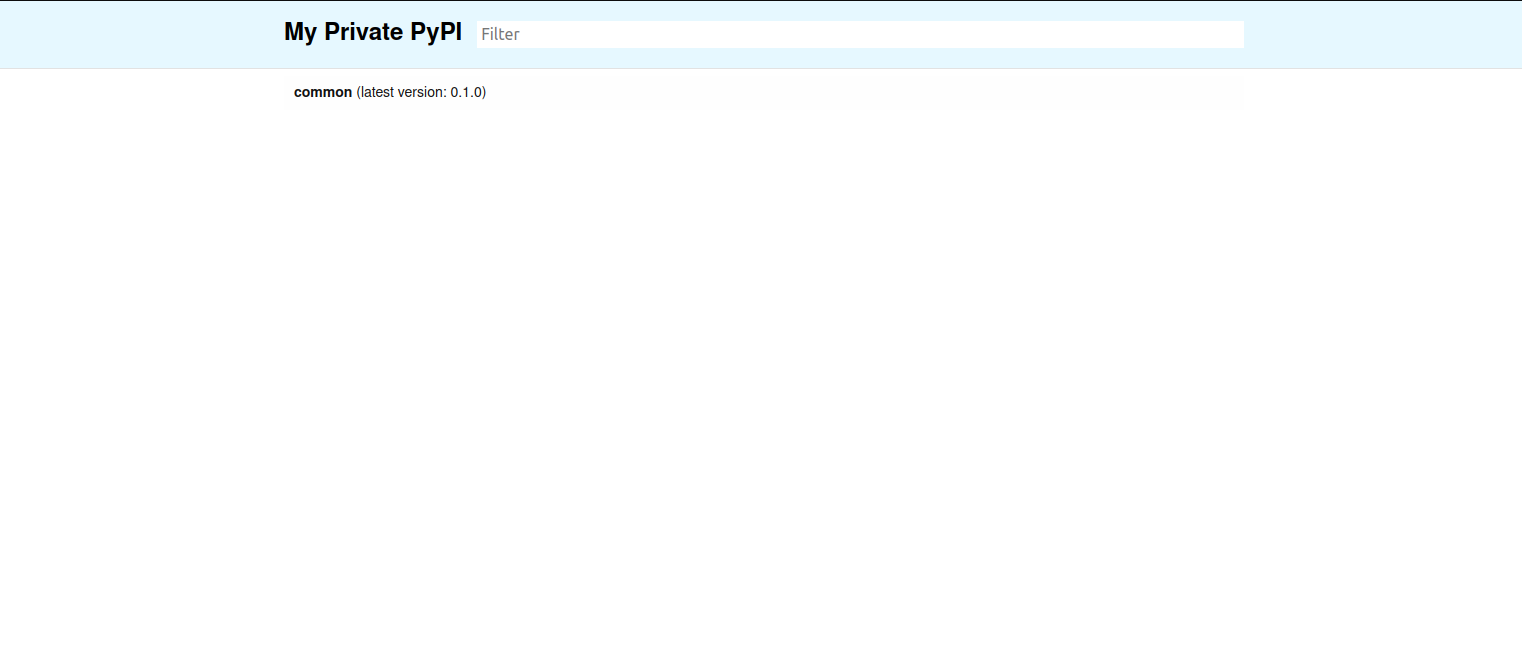In the previous post we saw how to create Python microservices. It’s likely that these microservices will share code. For example libraries for logging, accessing the database, etc. In this post we’ll see how to create and host Python packages.
Before We Begin
The setup is intentionally chosen for simplicity. We’ll separate the common code into a repository of its own, and use Poetry to package it. We’ll deploy it to S3, and use dumb-pypi to generate a static site which can be used to list the hosted packages.
The setup can be expanded to accommodate larger organizations with more teams, but it is primarily intended for smaller organizations with fewer teams that need to ramp up quickly. The main idea behind package distribution for Python is to arrange the files in a particular directory structure that can be accessed by a web server. While I am utilizing S3, you are free to use any comparable technology. You may even host everything on virtual machines (VMs) that are placed behind a load balancer.
Getting Started
Let’s start with a package called “common” which contains the OTel code we saw previously. In essence, we’ve simply copied the contents of package over into a new repository. Next we’ll intialize a Poetry project and enter the relevant information interactively.
1 | poetry init --name="common" --description="A collection of utilities" --python="^3.12" |
Next we’ll add the relevant dependencies with Poetry. The first three are for the common code, and the fourth is for generating static pages.
1 | poetry add opentelemetry-sdk@latest |
Next we’ll write a small bash script which will create the package, generate a static site to display hosted packages, and upload them to S3.
1 |
|
There’s a lot going on in the script. First we build the package using Poetry on line #7. The output contains the name of the zip file and we extract that into a variable. This is then stored into a file on line #8 and will be used by dumb-pypi to generate the static files. We sort and deduplicate the packages on line #9. On line #12 we store copy the package to S3. On line #15 we generate the static files into a folder named index which we then copy to S3 on line #21. On line #24 we open the documentation in the browser.
The S3 bucket contains a directory structure as mentioned in the Python packaging docs.[1]
Before we run the script, however, we will have to configure the S3 bucket to be publicly accessible. We do so by enabling it to serve static content, and adding a policy which enables access to the content. The policy is given below.
1 | { |
Now we’ll run the script.
1 | ./deploy.sh |
The browser displays the following page.

We can now test the installation of the package with both Poetry and Pip. We will do this in a different Poetry project so that the install does not conflict with the existing “common” package.
1 | pip install --extra-index-url https://selfhostedpackages.s3.us-west-2.amazonaws.com/packages/devtools/ common |
Notice how we added the location an extra index using --extra-index-url. The URL points to the devtools directory in the bucket which is the root directory for the packages created by the “devtools” team. The subdirectories follow the layout mentioned previously.
Next we’ll try the same with Poetry after uninstalling the package using pip. First, we’ll check how Poetry allows us to do it.
1 | poetry add --help |
Let’s go ahead and add the package in that format.
1 | poetry add --dry-run https://selfhostedpackages.s3.us-west-2.amazonaws.com/packages/devtools/common/common-0.1.0.tar.gz |
We can verify that the package was installed successfully by importing it in a Python shell.
1 | Python 3.12.0 | packaged by Anaconda, Inc. | (main, Oct 2 2023, 17:29:18) [GCC 11.2.0] on linux |
Conclusion
That’s it. That’s how we can host our own Python packages using S3. Note that this is a setup to get started quickly. If you’re looking for a more matured setup, please take a look at the devpi project.[2] The code is available on Github.
Footnotes and References
[1] https://packaging.python.org/en/latest/guides/hosting-your-own-index/#manual-repository
[2] https://devpi.net/docs/devpi/devpi/latest/+doc/index.html